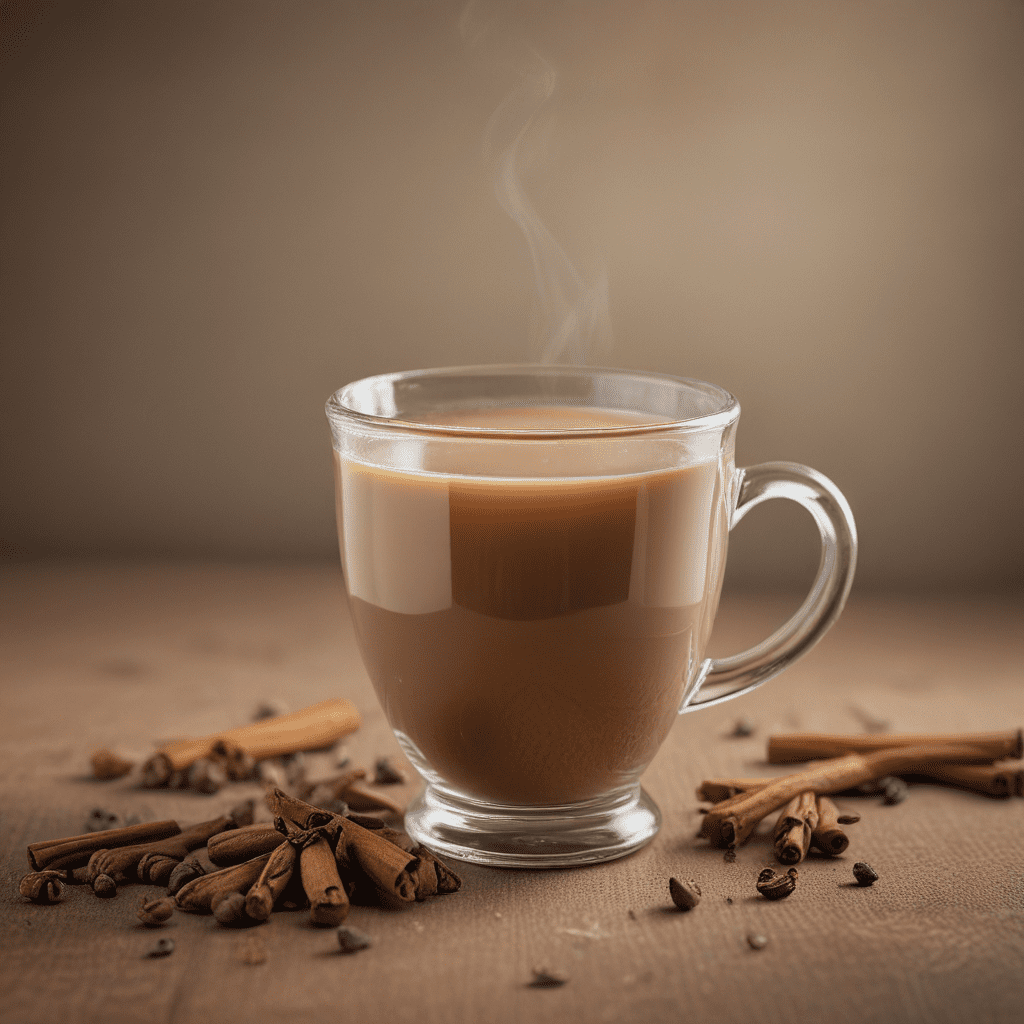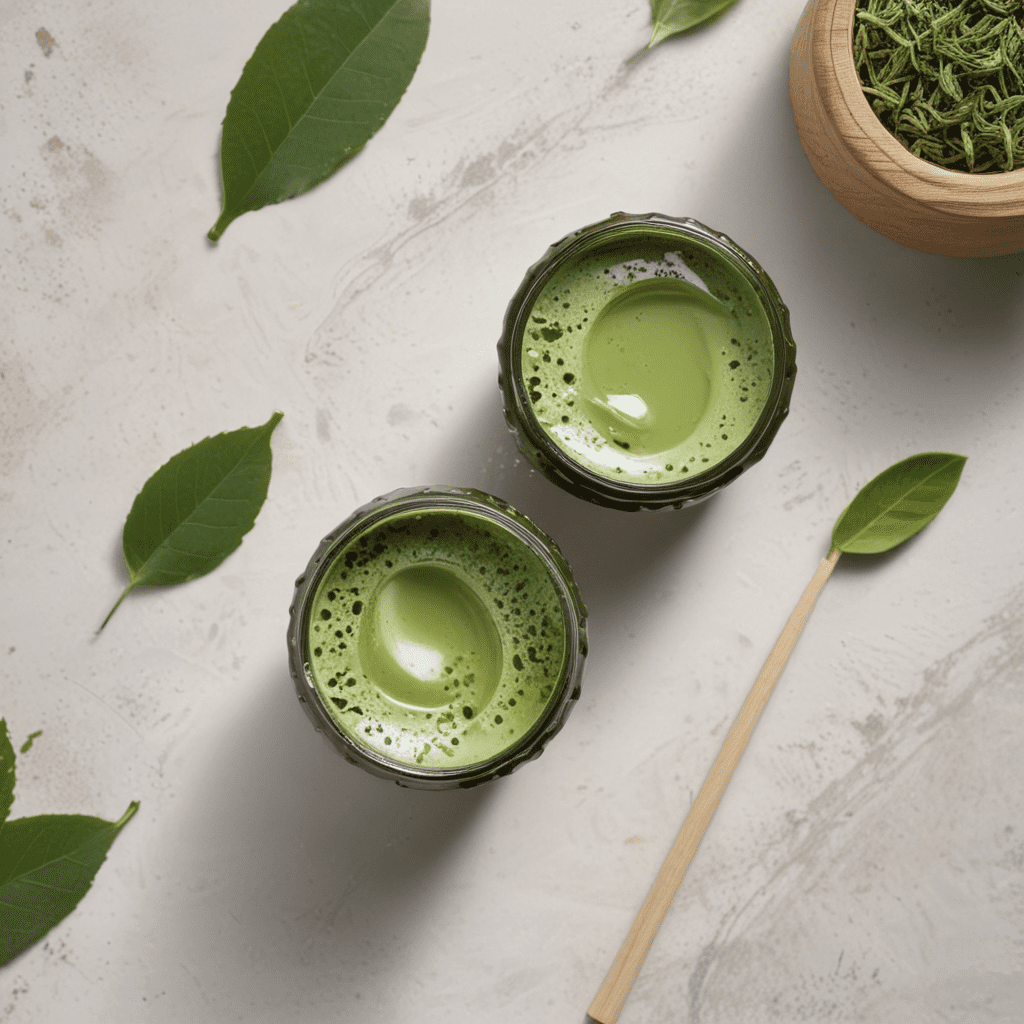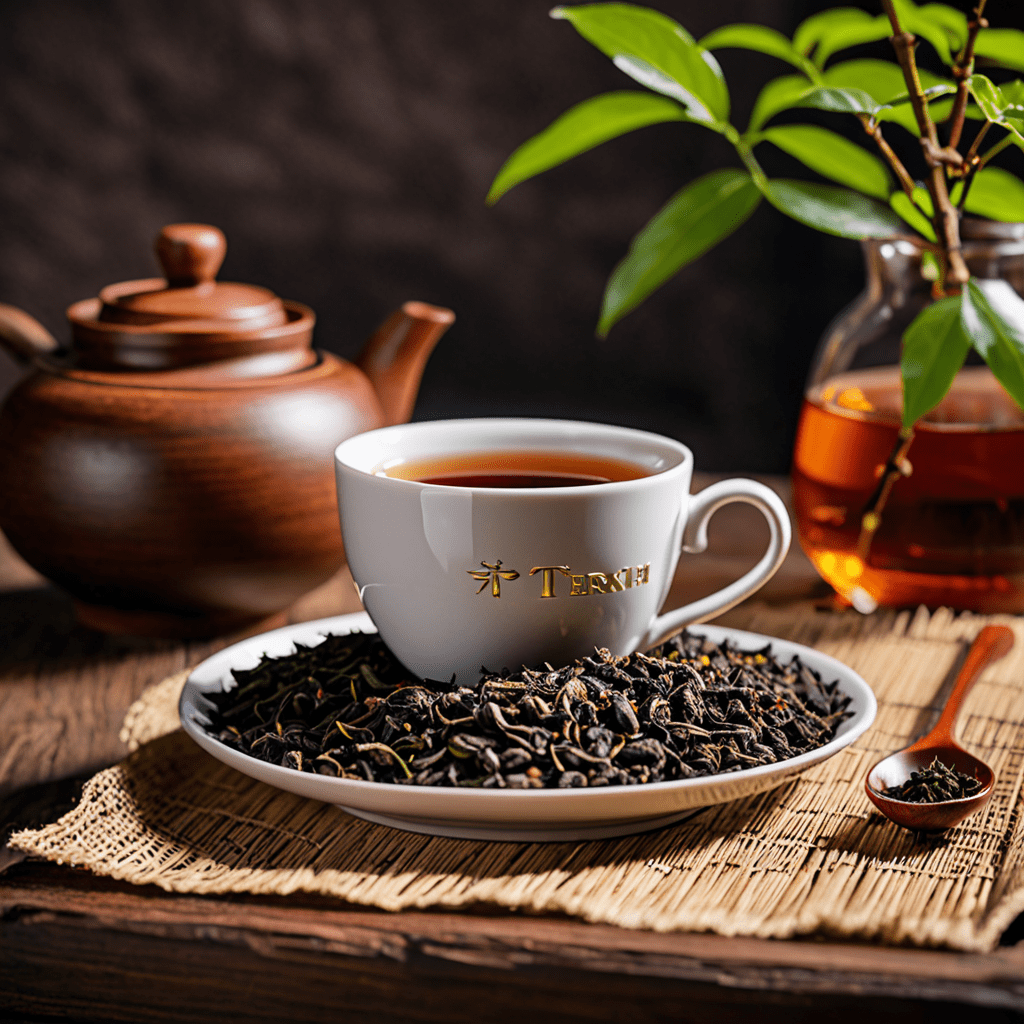
Chai Tea: The Ultimate Winter Beverage
1. Origins and History of Chai Tea
Chai tea, a fragrant and flavorful beverage, has a rich history spanning centuries and continents. Originating in India, chai gained popularity as a staple in traditional Ayurvedic medicine, where its aromatic spices were believed to possess therapeutic properties.
The British, during their colonization of India, encountered chai and incorporated it into their own tea culture. Chai's popularity surged in the West during the 1960s and 1970s, becoming a beloved winter beverage synonymous with warmth and comfort.
2. Blending the Perfect Chai Brew
Chai tea derives its unique flavor from a harmonious blend of spices. Traditional Indian chai recipes often include a base of black tea leaves, such as Assam or Darjeeling, combined with a symphony of aromatic spices. Cardamom, cinnamon, ginger, cloves, and nutmeg are common additions, contributing their distinct notes to the overall chai experience.
The proportions and combinations of spices can vary, allowing for endless customization and personal preferences. The key to crafting the perfect chai brew lies in striking a balance between the spices' intensities, creating a harmonious and flavorful beverage that delights the senses.
3. Health Benefits of Chai Tea
Beyond its captivating aroma and taste, chai tea is also touted for its potential health benefits. The spices used in chai, particularly ginger, cloves, and cinnamon, possess anti-inflammatory and antioxidant properties. Studies suggest that regular consumption of chai tea may aid in digestion, reduce inflammation, and even boost immunity.
Furthermore, chai tea contains caffeine, which can provide a gentle energy boost without the jitters associated with coffee. However, it's important to note that the caffeine content in chai can vary depending on the blend and brewing method.
4. Warming Spices and Their Medicinal Properties
The spices found in chai tea play a pivotal role in its medicinal properties. Cardamom, with its warm and slightly sweet flavor, is believed to aid digestion and alleviate nausea. Cinnamon, known for its sweet and spicy notes, has anti-inflammatory and blood sugar-regulating effects. Ginger, with its distinct pungent flavor, is renowned for its anti-inflammatory and digestive properties.
Cloves, characterized by their intense and aromatic flavor, contribute to chai's overall warming effect and may have antibacterial properties. Nutmeg, with its slightly sweet and nutty flavor, is believed to possess calming and sleep-promoting effects.
5. The Ritual of Brewing Chai Tea
Brewing chai tea is an art form in itself, a mindful ritual that elevates the experience of savoring this aromatic beverage. Traditionally, chai is prepared by simmering a mixture of spices, black tea leaves, and milk or water in a pot. The spices are first toasted to release their essential oils, then combined with the tea leaves and liquid.
The mixture is brought to a boil, then reduced to a simmer and left to steep for several minutes, allowing the flavors to meld harmoniously. The resulting concoction is strained to remove the spices and is often sweetened with honey or sugar to balance the intensity of the spices.
6. Chai Tea Variations from Around the World
Chai tea has evolved beyond its Indian roots, with variations emerging across the globe. In Tibet, a salty version known as "butter tea" is consumed, featuring a blend of tea, yak butter, and salt. In Malaysia, "teh tarik" is a popular variation, made with condensed milk and pulled rhythmically to create a frothy texture. In Pakistan, "doodh patti" is a creamy chai made with full-fat milk and a touch of honey. These diverse variations showcase the adaptability and global appeal of chai tea.
7. Pairing Chai Tea with Winter Delicacies
Chai tea's warm and aromatic nature pairs perfectly with a range of winter treats. Gingerbread cookies, with their spicy and sweet notes, complement the flavors of chai, creating a harmonious duo. Cinnamon rolls, drizzled with a sweet glaze, provide a decadent accompaniment to the robust spices of chai. Apple pie, with its flaky crust and tart filling, offers a delightful contrast to the richness of chai. These pairings elevate the winter experience, providing a comforting and indulgent treat.
8. Chai Tea as a Winter Warming Beverage
During the cold winter months, chai tea emerges as the ultimate warming beverage. Its aromatic blend of spices, combined with the caffeine content of black tea, creates a comforting and stimulating concoction. Sipping on a steaming cup of chai can dispel the winter chill and invigorate the body and mind. The spices' warming properties, such as those of ginger and cinnamon, help promote circulation and alleviate cold symptoms.
9. Mindful Moments with Chai Tea
Beyond its physical benefits, chai tea also invites mindful moments. The brewing ritual itself can become a meditative practice, focusing on the present and engaging the senses. The aroma of spices, the warmth of the teacup, and the act of savoring each sip can all contribute to a serene and reflective experience. Chai tea thus becomes a catalyst for inner peace and contemplation, providing a sanctuary amidst the demands of winter.
10. Seasonal Chai Tea Recipes
To celebrate the season, consider experimenting with special chai tea recipes tailored for winter. Apple cinnamon chai features the addition of diced apples and cinnamon sticks, creating a comforting and festive twist. Gingerbread chai incorporates gingerbread spices, such as cloves and nutmeg, offering a warm and nostalgic flavor profile. Cardamom orange chai adds a vibrant citrus note with the inclusion of orange peel and cardamom pods, creating a refreshing and invigorating beverage. These seasonal variations capture the essence of winter, providing unique and delightful chai experiences.
FAQ:
Q: Is chai tea caffeinated?
A: Yes, chai tea typically contains caffeine due to the presence of black tea leaves. However, the caffeine content can vary depending on the blend and brewing method.
Q: How do I make a vegan version of chai tea?
A: To make a vegan chai tea, replace the milk or dairy creamer with a plant-based alternative, such as almond milk, soy milk, or coconut milk.
Q: Can I add honey or sugar to my chai tea?
A: Yes, honey or sugar can be added to sweeten chai tea according to personal preference. However, it's important to remember that adding sweeteners can impact the calorie content.
Q: How long should I steep chai tea?
A: The ideal steeping time for chai tea is around 5-7 minutes. This allows the spices to fully infuse and develop their flavors.
Q: How can I store chai tea?
A: Chai tea can be stored in an airtight container at room temperature for up to 2-3 days. For longer storage, it can be refrigerated for up to 7 days.


